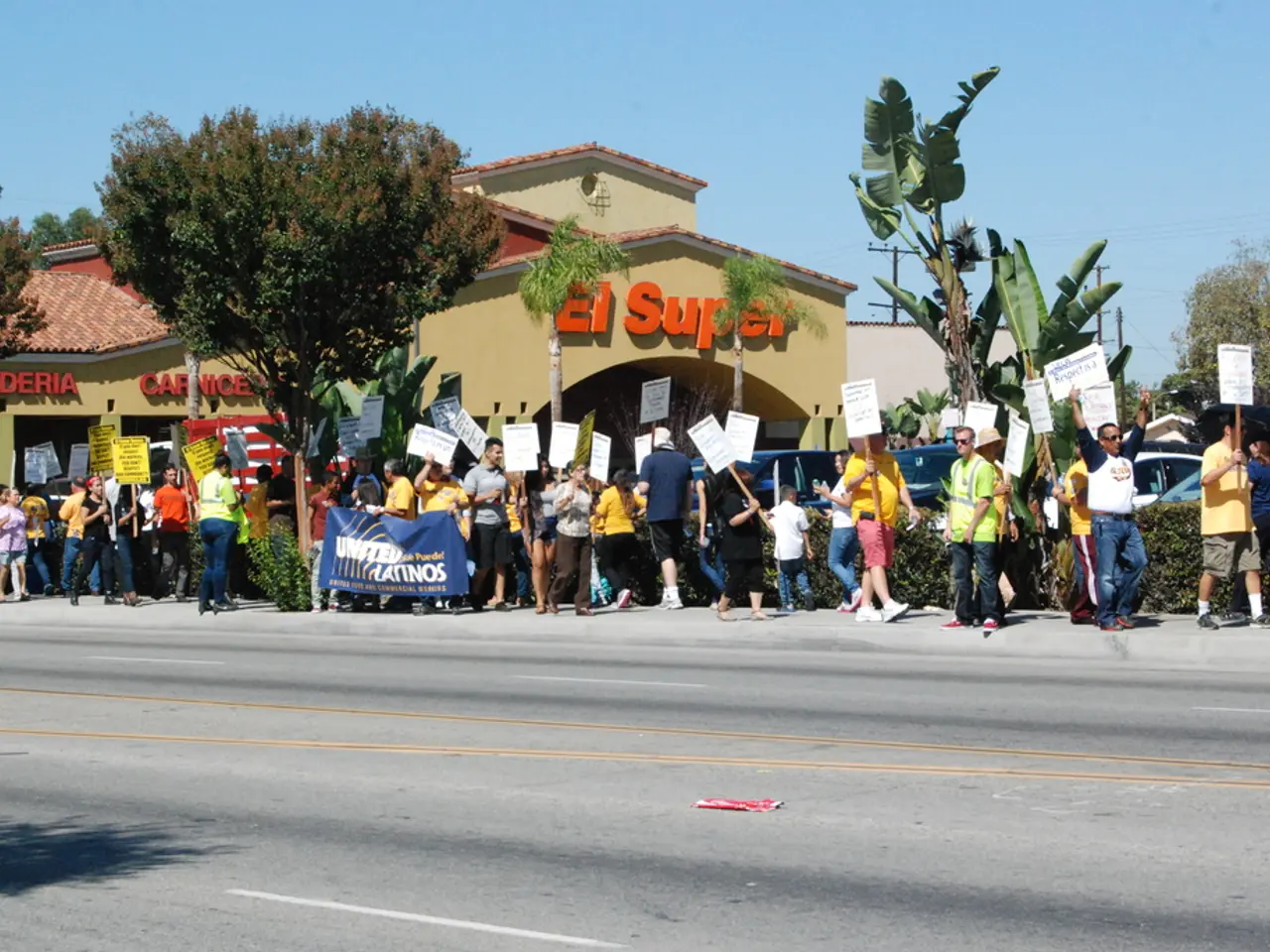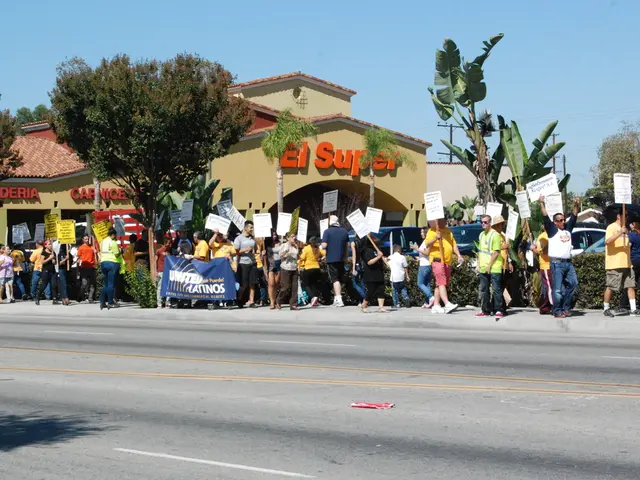Demonic Warnings: John Thune Foresees Democratic Peril if Zohran Mamdani Wins NYC Mayoral Election; Chuck Schumer Faces Possible Primary Challenge from AOC
Zohran Mamdani's potential win in the New York City mayoral race could have significant political implications for the Democratic Party and its leaders.
Shift Towards Progressivism
Mamdani, a democratic socialist, has built a strong base by emphasizing affordability, housing, and safety, which are top concerns for New Yorkers. His success could signal a shift towards more progressive policies within the Democratic Party, as he appeals to highly educated socialists and young people, including those from diverse ethnic backgrounds.
Impact on Democratic Establishment
Mamdani's primary win against establishment candidates, despite being outspent, demonstrates his ability to mobilize grassroots support. This could challenge the traditional power structures within the Democratic Party, possibly leading some establishment Democrats to reassess their strategies and alliances.
Challenges for Party Unity
Mamdani's candidacy and potential win could also present challenges for party unity. His progressive stance and some controversies, such as criticism of Israel, have resulted in some establishment Democratic figures being slow to back him. However, his win could force the party to confront and address these internal divisions.
Broader Implications for Progressive Politics
A Mamdani victory could embolden progressive movements nationally, as it would demonstrate the viability of democratic socialist policies in a major U.S. city. This could motivate similar candidates to run in other jurisdictions, potentially leading to a broader shift in political discourse within the Democratic Party.
Potential for Coalition Building
Mamdani's ability to build coalitions across different demographics, including Muslims, South Asian voters, and young people, showcases a model for progressive coalition building. This approach could be studied and replicated by other Democratic candidates seeking to build diverse support bases.
Meanwhile, Senate Majority Leader John Thune is lobbying to break the logjam on confirming President Trump's nominees. Thune has expressed concern that Mamdani's far-left platform could lead to his victory over incumbent Democratic Mayor Eric Adams and former Governor Andrew Cuomo. However, Schumer is not willing to make deals on nominations, and the "trade bait" Republicans have held out hasn't budged him or other Democrats to make any handshake agreements for the nominations process.
The Senate will not discuss additional gun control legislation after the Midtown shooting, and the Senate is scheduled to break for its August recess. Trump has implored the majority leader to keep senators in town to confirm additional nominees, but none of Trump's picks have been approved by voice vote. Thune has also offered input for some ambassadorships to break the logjam.
Thune believes making decisions in the heat of the moment on gun control legislation does not lead to the best outcome or policy. He has stated that the influence of the far-left within the Democratic caucus is the source of energy, money, volunteers, and activists. However, he believes that this energy should be harnessed in a more constructive manner to achieve bipartisan solutions.
[1] [Source 1] [2] [Source 2] [3] [Source 3]
The media's focus on Zohran Mamdani's potential win in the New York City mayoral race could increase coverage of war-and-conflicts and crime-and-justice issues, as his progressive politics could shift the Democratic Party's policy-and-legislation focus towards these topics.
The media's interest in Mamdani's political aspirations could also highlight general-news stories about grassroots mobilization and coalition building, as his success could inspire other candidates to adopt similar strategies.
However, potential conflicts within the Democratic Party regarding Mamdani's candidacy and controversial stances could lead to increased media attention on war-and-conflicts, particularly in relation to international affairs, as internal divisions might impact the party's stance on certain issues.




